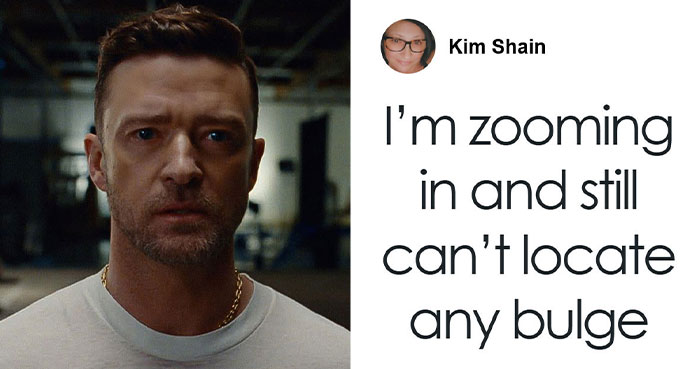Intelligence is a very difficult and touchy topic to cover. A ton of people have their own personal interpretations of what exactly being brainy means. Moreover, many of us also like to believe that we’re definitely above average when it comes to our skills and smarts (hello, our dear Dunning-Kruger effect, how have you been holding up?).
There’s a very sharp divide between someone who might be intelligent (i.e. book smart) and someone who is wise, experienced, relies on common sense, or knows when to follow their gut. What’s more, one’s understanding of intelligence doesn’t necessarily overlap much with emotional intelligence and the ability to empathize with and manage other people well. Don’t even get us started on the fact that just because someone is highly educated doesn’t automatically make them smart. We also have to consider whether or not someone is neuro(a)typical and figure out if we’re equating intelligence with IQ or not.
Internet users shared their opinions about the small and low-key signs that someone might be really intelligent in a very enlightening r/AskReddit thread. Check out their opinions below, Pandas. Though keep in mind, some of them have a far broader understanding of intelligence that borders on wisdom, empathy, social awareness, and perseverance (or, as we like to call it, the difference between 'intelligence' with an 'i' and 'Intelligence' with a capital 'I'). And if you’d like to share what you personally think indicates that someone is intelligent, be sure to drop by the comment section.
Bored Panda reached out to Steven Wooding, who is part of the Omni Calculator team and a member of the Institute of Physics in the UK, to talk about quantifying intelligence. Read on for our full interview with him.
This post may include affiliate links.
 They don't go around telling other people how smart they are.
They don't go around telling other people how smart they are.
This goes for most aspects of a person's psyche. If I have to tell you I'm (smart, pretty, God-fearing, funny, or whatever, I'm probably not that thing.)
Steven, from the Omni Calculator project, which has created over 3,000 calculators that are openly available on their website, told Bored Panda that quantifying intelligence objectively isn't easy.
"The gold standard is the IQ test, but maybe a person that does very well on this measure would be ineffective in a real-world situation that does look like an IQ test question," he explained that it's not a perfect method.
"The other issue with the IQ test is that it gives you a score relative to the population, so it's not an absolute measure. Then there is emotional intelligence, which can make a person very effective in the world but is entirely missed by the conventional IQ test," he told us.
 They are comfortable admitting when they are wrong or don’t know the answer
They are comfortable admitting when they are wrong or don’t know the answer
 Asking questions. Curiosity is the true foundation of intelligence.
Asking questions. Curiosity is the true foundation of intelligence.
Also: answering questions honestly, without making the asker feel like a dumbass for daring to ask.
It's essential to stay humble and grounded throughout your life, no matter how high you might rise. Though it can be easy to forget that when you see success after success and you're constantly lauded for your skills.
Steven said that it's good to remember that "everyone makes mistakes—even the most intelligent people. And next time, it could be you."
"It's good to remember this if you're feeling very confident or you've rushed an answer to a question. Take a moment to double-check yourself," he noted that nobody is above making a mistake, eventually.
It's also important not to get frustrated that others might not have the very same knowledge base as you. "It can be very hard not to get frustrated. The best way is to assume the role of a teacher and help those around you learn what you know. Over time, the gap between you and them will narrow, reducing the cause of potential frustration."
 It's pretty hard to be legitimately funny without being smart.
It's pretty hard to be legitimately funny without being smart.
I’d say the reverse also applies: it’s hard to be legitimately intelligent without having a sense of humor.
 They can debate without vitriol. Really intelligent individuals can present a well informed argument while leaving emotions aside and without insulting their opponents
They can debate without vitriol. Really intelligent individuals can present a well informed argument while leaving emotions aside and without insulting their opponents
They can disagree without dismissing their opponent or their arguments.
 They don't pretend to know things that they don't.
They don't pretend to know things that they don't.
I can confirm this is true. I may do well on standardized testing but if I wasn't extremely adept at convincing people that I know what they're talking about everyone would think I'm a dumb@ss and they wouldn't be wrong.
Ugh... I was like this with tests and never did any home or class work, but they just passed me every year on the tests. Yeah, I never needed to learn anything in school, except the lessons weren't just the Jesus, I never learned to complete tasks or manage my time and was 34 before I was diagnosed with ADHD and disabled until I found a medication.
Load More Replies...Pretending to know things I don't know is how I got 7 of my last 10 jobs.
That's the motto at my current job: fake it till you make it. However I stand out, as we were told to provide any kind of information, even white lies. Me, just bluntly say I don't know or o don't have this information available. Doesn't fly well with management.
Load More Replies...Never! If I don't understand something, you best explain it to me if you want positive results.
If I learned one thing from everything, it's that I don't know everything
Unless it for a job interview, then I totally pretend to know stuff I don’t.
That's another one that I think is a sign of maturity, not intelligence. Grad school actually TAUGHT me (and lots of other people) to pretend we understood what others were talking about in order to look like we were keeping up academically. I had to train myself out of that habit. Some people never do get out of the habit, not because they aren't intelligent, but because they aren't emotionally/socially mature.
Bored Panda was also interested to find out how much the Omni Calculator project itself has touched upon untangling intelligence. Though they currently don't have anything that calculates your intelligence directly, they do have the IQ Percentile Calculator and the Happiness Calculator.
"Quantifying smartness is difficult. Omni Calculator has the IQ Percentile Calculator, which tells you what proportion of the population has a higher and lower IQ than you (requires your IQ score). Though we might be able to tell you how happy you are with our Happiness Calculator—it asks a few questions to see where you are on the Subjective Happiness Scale (SHS)."
Broadly speaking, intelligence is the ability to acquire and apply knowledge and skills. Quick thinking, perceptiveness, a good memory, adaptability, and the ability to embrace failure are all small parts of what makes someone smart. But reading a lot of books means nothing if you can’t or won’t apply that knowledge to whatever goals you have in mind.
 They can frame & process unfamiliar things quickly as they learn them, & can connect them to familiar things easily both for themselves & in conversing with others. Lots of “ohhh, it’s like …” moments that are on track.
They can frame & process unfamiliar things quickly as they learn them, & can connect them to familiar things easily both for themselves & in conversing with others. Lots of “ohhh, it’s like …” moments that are on track.
Many of the smart people I’ve known seem to see concepts more clearly, like ideas are better lit to them. It’s hard to explain exactly, just they seem to see concepts with less fog/more focus to them.
 Adaptability. A smart individual can always think of different solutions when circumstances change.
Adaptability. A smart individual can always think of different solutions when circumstances change.
Though intelligence is often celebrated (and, frankly, it’s something that humankind should aspire to as a whole), its impact is vastly overestimated in some instances. For instance, when it comes to financial stability. Or, as Bloomberg puts it: “If you’re so smart, why aren’t you rich?” Viewing intelligence only through the lens of IQ is very limiting. And correlates very little with real-life success.
Economist James Heckman’s research indicates that IQ isn’t all that important when it comes to one’s financial prospects. Instead, one’s personality is key. Traits like conscientiousness, diligence, perseverance, and self-discipline are vastly more important.
Meanwhile, Bloomberg writes that Heckman’s study found that good grades and achievement-test results predicted adult success far better than raw IQ scores. Grades are an expression of intelligence, as well as non-cognitive skills, such as good study habits or a student’s ability to collaborate with others. In short, personality is vital when it comes to success.
 Quick understanding of concepts that they've never encountered before. When you see it, it's mad impressive.
Quick understanding of concepts that they've never encountered before. When you see it, it's mad impressive.
A friend who watches a sports game for the first time and immediately picks up on the habits and style of each team. Someone who hears a complicated explanation of something and quickly translates it into something that makes sense.
Impresses me every time I see it happen.
I still wish often, I wasn't so hyper aware.. I'm only now recovery from the drugs I used to dampen this..
Being able to understand other points of view….without necessarily agreeing.
 They listen.
They listen.
Intelligent youth don't necessarily do this; some are little chatterboxes. But they often learn that they make more headway in conversations through listening to others, rather than monopolizing conversation.
Look, Pandas, if we’re being completely honest here, I see myself as a pretty darn intelligent guy. I know I’m smart… and I work hard at it.
However, I’m also aware that this advantage is balanced out by my lack of common sense, the overwhelming propensity to daydream instead of taking action, and my idealistic naivety. I also sometimes forget to press the ‘Sarcasm’ button in my mind before speaking.
(In geek-speak, if this were Dungeons & Dragons, my Wisdom ability score would be negative, and I’d have a wildly fluctuating Charisma stat.) I know my strengths. But I’m also painfully aware of where I still need to grow.
Generally speaking, this is where the Dunning-Kruger effect kicks in. The short version is that most people believe that their intelligence is above average. Obviously, mathematically, this can’t be the case because that would just change the collective average.
The long version is that someone who (objectively) has very low skills or knowledge in a particular area believes that they are far better than they actually are. It’s a mix of arrogance and overestimating one’s competence.
 They don’t pry and interrogate others on their own knowledge/field of work.
They don’t pry and interrogate others on their own knowledge/field of work.
Smart people understand that others can be smart too. It’s not a contest.
But maybe they do it because they love to learn and want to know more?
 I find it is often in their eyes - even if they don't say much their eyes are always scanning, thinking, indicative of a very active mental world. A bit like border collie's eyes lol
I find it is often in their eyes - even if they don't say much their eyes are always scanning, thinking, indicative of a very active mental world. A bit like border collie's eyes lol
One of the smartest people I've ever met was a litterature professor. He was a modest and generally very nice man but half the time it felt like his mind was in one of the countless books in his head. I don't doubt that intelligent people can (and often are) very aware of their surroundings but I disagree that's it's a sign of intelligence in and of itself.
Admitting when they’re wrong, or educating someone instead of shaming them
I am rarely 100 percent sure and will always go back to researching if I or others raise doubts. I live with someone that ignores when I say I stand corrected and loves to go on how I was wrong. And only truly stupid people make fun of someone for mispronunciation even though they used the word correctly. Not knowing the correct way to say something but do know where and when means they read and comprehend.
However, interestingly, the Dunning-Kruger effect also applies to those who excel in their chosen area of expertise. These brainiacs may believe that the knowledge that they have is easy for others to understand or that a particular task is not all that difficult. They also tend to underestimate their own skills.
It’s not enough to be brilliantly smart if you’re unable to maintain it all. Having a good diet, getting plenty of exercise, staying curious, and maintaining strong social ties are all factors that help you stay sharp as you age. Taking care of yourself is the intelligent thing to do.
 Quiet confidence when in discussion and being able to discuss BOTH sides without turning it into an argument.
Quiet confidence when in discussion and being able to discuss BOTH sides without turning it into an argument.
Throwing tantrums, yelling and screaming as a functional adult because someone has a different opinion than you do usually leads me to believe you didn't mentally mature effectively.
I have a relatively conservative friend who works in my industry (Restaurants) and is extremely tolerant of those around us. Doesn't drink, doesn't smoke, no dope, church every Sunday, is against abortion, doesn't agree with immigration policy, etc etc etc... We have had VERY long winded discussions in the prep room about things like that, and at the end of the day, we agree to disagree and then rock paper scissors on who's doing the floors and who's cleaning the freezer.
 They ask few questions, but the ones they do ask are very insightful.
They ask few questions, but the ones they do ask are very insightful.
This contradicts that they are always curious. Asking questions and not being afraid to acknowledge they don't know is the characteristic I'd say fits better.
A combination of critical thinking skills (direct problem solving) and lateral thinking skills (thinking outside the box). Being able to pull together data from both inside and outside a problem to solve it
It is sometimes easier to fix something others cannot because you don’t know as much as they do.
Can make complex ideas explained in an easier way
If you don't understand something thoroughly, you use big words ..just saying
 Tactful and careful wording. It implies that they are consciously, actively taking into consideration their environment and the feelings of those around them.
Tactful and careful wording. It implies that they are consciously, actively taking into consideration their environment and the feelings of those around them.
Someone who blurts out something impulsive or insensitive is typically not someone I would consider wise.
Someone who blurts things out may simply be socially awkward, on the autism spectrum, or thinking faster than they can speak.
 when you're complaining, they ask if you want advice, or just someone to listen
when you're complaining, they ask if you want advice, or just someone to listen
 They are able to adjust their speech without sounding patronizing to the person they are speaking to. They pay attention to how other people learn and explain things in their terms
They are able to adjust their speech without sounding patronizing to the person they are speaking to. They pay attention to how other people learn and explain things in their terms
This isn’t a universal “intelligent” trait but a few of the smartest people I know are always a little bit paranoid and very aware of their surroundings. Two people in particular who come to mind are meticulously aware of the small details happening in the moment that most people would just miss. They can get a read on a complete stranger sitting across the room with frightening precision.
It’s not a well read, book smart type of intelligence. But more of a hyper awareness of all things while still laughing, having fun or holding a conversation. Like the hardware on their brain works more efficiently.
They make keen observations about minuscule things. Shows how attentive and aware they are
 Patience, and they don’t make knee jerk reactions.
Patience, and they don’t make knee jerk reactions.
Patience..oh patience, aren't we close friends.. waiting for the scientific news that allows me to speak of what I've known for years..
 Excellent memory and retention and then application of such after a passage of time.
Excellent memory and retention and then application of such after a passage of time.
Not for all things. I know some ferociously intelligent people. Multiple degrees. Constant thirst for knowledge. Can understand and combine complex concepts then extrapolate to develop their own theories. But they can’t set the microwave timer or remember what they had for dinner last night. If it’s not important to them, they will simply not retain the knowledge.
When asked a question, they take the time to think about an answer rather than just blurting out any and all info on the subject that they remember.
Usually their jokes don't revolve around sexual jokes or toilet humour.
No. They can be as down and dirty as anybody when they're in that kind of mood. Intelligent people often know more so called bad words than the average person and how to use them to effect. Think of some famous, clever and very funny comedians who use foul language.
Not arguing back to further prove there point to be right
I disagree with a good chunk of these. I've met some very smart people who have been modest, open minded and just nice people. I've met others who made sure everyone knew how smart they were and were arrogant narcissists. Many of the things on the list are just personality traits.
Absolutely, and I think some of those people have different definitions of intelligent.
Load More Replies...Some of these points treat intelligent people as if they're some kind of Alien beings above the common run. They may be smarter but they're still human beings and fallible as well as emotional and not necessarily nice or nasty. Just like everybody else, flawed. Ain't nobody perfect. 😉
Actually I'm perfect it's been scientifically proven please don't ask me where I got my scars I was doing uh perfect people things definitely not being a complete idiot
Load More Replies...and a constant rehash as well! they're always the same article with slightly different wording of answers... https://www.boredpanda.com/subtle-signs-someone-intelligent | https://www.boredpanda.com/subtle-signs-of-intelligence/ | https://www.boredpanda.com/people-share-sign-of-intelligence-noticed-in-others | https://www.boredpanda.com/signs-that-someone-is-intelligent-ask-reddit
Load More Replies...What I found when reading all the above posts, it's all about how intelligence is perceived for each. So it's not really about how intelligent someone really is, is about how intelligent someone comes across ;)
Intelligence can't be put into one circle. I've been on bored panda for nearly 3 years now, and I remember the good old days where it wasn't just a mf cesspool of people bashing on certain individuals or communities. When it was creative, ACTUALLY humorous, colourful, informative and just downright fun. There is a lot of wasted potential with these writers. Please bored panda, I want the old you back.
None of these are correct. Generalization is impossible when it comes to the human mind. There are so many different ways to be intelligent! The really brilliant people I've had the joy to know run the gamut from social disasters who anger everyone around them to wonderfully well-rounded individuals who excel at their profession, their hobbies, and in their personal lives.
I think a lot of these confuse wisdom with intelligence and vice versa.
Many of these are more about emotional maturity and social understanding than "book smarts".
Howard, Raj, Leonard, and Sheldon,. All of them were smart and that is where the similarities end. While they were fictional, they very much represent a lot of people
Several times on this list, the idea of "being able to stay calm in a discussion with someone you disagree with" popped up. I think IT'S OK TO BE PASSIONATE ABOUT SOMETHING, especially when the topic includes something like life or death. Then there are the trolls, whose aim is to get you to lose their s**t, then turn around and complain about not being able to have a civil discussion. Then there's this "agree to disagree" nonsense. That's fine when you're talking about favourite pizza toppings, not when you're talking about trans lives or gun control.
I feel most of the examples are observational generalisations... Intelligence comes in many guises.
A smart person doesn’t try to tie down the definition of smart. There are way too many variables and too many opinions on what is ‘smart’. So there you go.
I think that a sign of intelligence is knowing that you're intelligent. Humility is great, but confidence is critical
I disagree with a good chunk of these. I've met some very smart people who have been modest, open minded and just nice people. I've met others who made sure everyone knew how smart they were and were arrogant narcissists. Many of the things on the list are just personality traits.
Absolutely, and I think some of those people have different definitions of intelligent.
Load More Replies...Some of these points treat intelligent people as if they're some kind of Alien beings above the common run. They may be smarter but they're still human beings and fallible as well as emotional and not necessarily nice or nasty. Just like everybody else, flawed. Ain't nobody perfect. 😉
Actually I'm perfect it's been scientifically proven please don't ask me where I got my scars I was doing uh perfect people things definitely not being a complete idiot
Load More Replies...and a constant rehash as well! they're always the same article with slightly different wording of answers... https://www.boredpanda.com/subtle-signs-someone-intelligent | https://www.boredpanda.com/subtle-signs-of-intelligence/ | https://www.boredpanda.com/people-share-sign-of-intelligence-noticed-in-others | https://www.boredpanda.com/signs-that-someone-is-intelligent-ask-reddit
Load More Replies...What I found when reading all the above posts, it's all about how intelligence is perceived for each. So it's not really about how intelligent someone really is, is about how intelligent someone comes across ;)
Intelligence can't be put into one circle. I've been on bored panda for nearly 3 years now, and I remember the good old days where it wasn't just a mf cesspool of people bashing on certain individuals or communities. When it was creative, ACTUALLY humorous, colourful, informative and just downright fun. There is a lot of wasted potential with these writers. Please bored panda, I want the old you back.
None of these are correct. Generalization is impossible when it comes to the human mind. There are so many different ways to be intelligent! The really brilliant people I've had the joy to know run the gamut from social disasters who anger everyone around them to wonderfully well-rounded individuals who excel at their profession, their hobbies, and in their personal lives.
I think a lot of these confuse wisdom with intelligence and vice versa.
Many of these are more about emotional maturity and social understanding than "book smarts".
Howard, Raj, Leonard, and Sheldon,. All of them were smart and that is where the similarities end. While they were fictional, they very much represent a lot of people
Several times on this list, the idea of "being able to stay calm in a discussion with someone you disagree with" popped up. I think IT'S OK TO BE PASSIONATE ABOUT SOMETHING, especially when the topic includes something like life or death. Then there are the trolls, whose aim is to get you to lose their s**t, then turn around and complain about not being able to have a civil discussion. Then there's this "agree to disagree" nonsense. That's fine when you're talking about favourite pizza toppings, not when you're talking about trans lives or gun control.
I feel most of the examples are observational generalisations... Intelligence comes in many guises.
A smart person doesn’t try to tie down the definition of smart. There are way too many variables and too many opinions on what is ‘smart’. So there you go.
I think that a sign of intelligence is knowing that you're intelligent. Humility is great, but confidence is critical

 Dark Mode
Dark Mode 

 No fees, cancel anytime
No fees, cancel anytime 









































